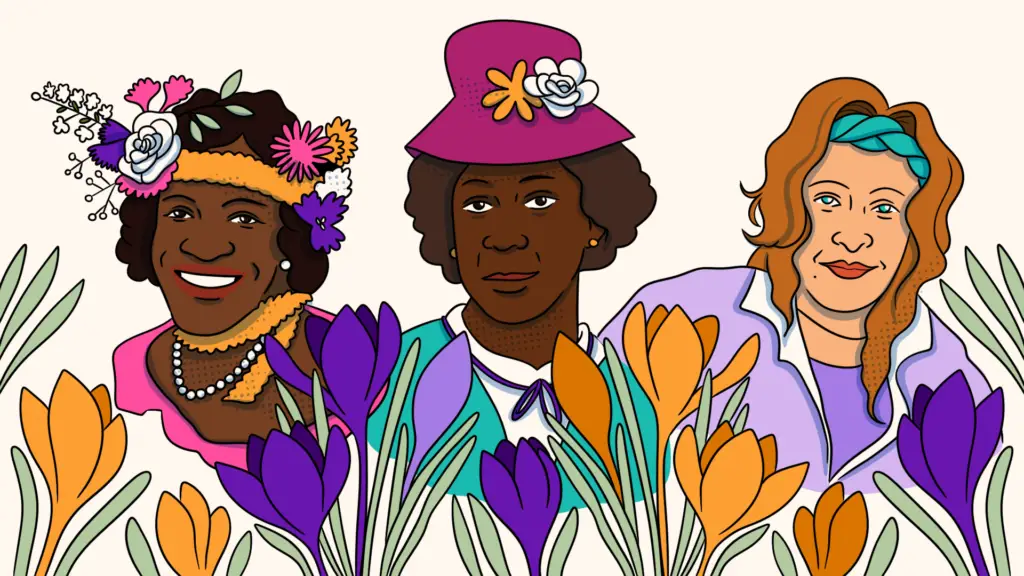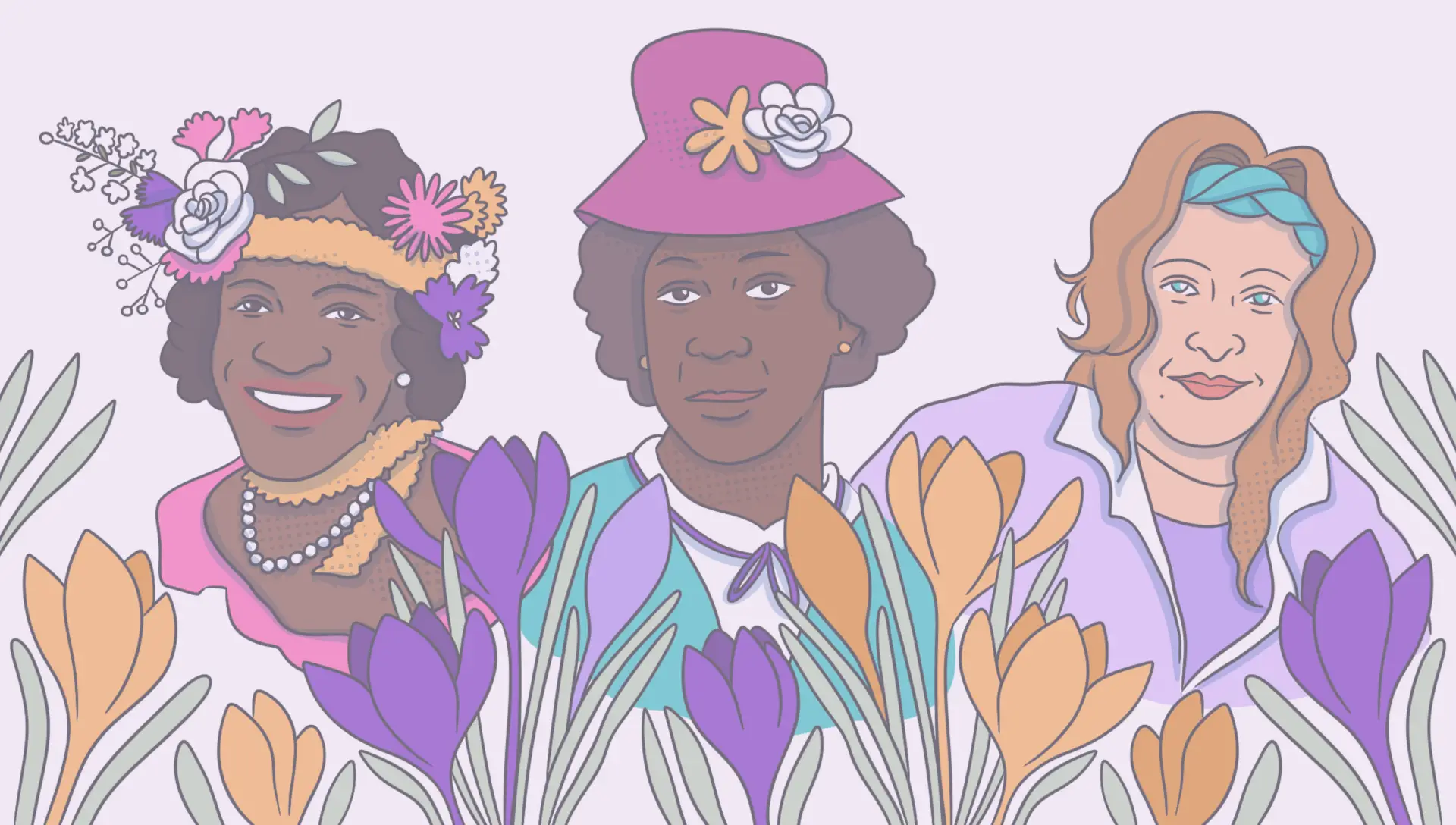June 1st marks the start of Pride Month. While Pride may be associated with parades, rainbows, and queer-friendly events/gatherings, Pride Month was born out of protest. Protests have been instrumental in the progression of human rights. They are a vivid demonstration of our community’s resilience and determination. They are not just about expressing discontent; they’re a vital means of creating public discourse, educating the broader population, and initiating legislative and societal change.
Protests serve as a rallying point, not only uniting the transgender community but also garnering support from allies and creating a sense of solidarity and shared purpose. Protests play a crucial role in challenging the status quo and pushing for a reevaluation of societal norms and legal frameworks that have historically excluded or discriminated against us transgender and nonbinary folks. Through protests, we send a clear message: our rights are non-negotiable, and we will persist in our efforts to achieve justice and equality for all members of the transgender community.
Table of Contents

Before Stonewall
In the realm of transgender history, there have been many defining moments that have shaped the fight for trans rights in the United States. The Stonewall Riots stand as a defining and monumental event in the history of queer rights in the United States, marking a significant moment in the advancement of transgender rights and visibility. Occurring in June 1969 at the Stonewall Inn in New York City, these riots were not isolated incidents but rather a response to ongoing police raids and discrimination faced by the queer community. Transgender women of color, including notable figures like Marsha P. Johnson and Sylvia Rivera, were among the key leaders and participants in these protests.
The Stonewall Riots did more than just challenge police brutality against the queer community; they sparked a global movement toward recognizing and affirming the rights of transgender people. This period of activism was instrumental in establishing the foundation of trans-specific advocacy and healthcare initiatives. By bravely standing up against systemic discrimination, the participants of the Stonewall Riots paved the way for the emergence of organizations and movements dedicated to the specific needs of the transgender community.
Just a few years before the renowned Stonewall Riots, another riot challenging police harassment took place. This was the Compton’s Cafeteria Riot of 1966. In August 1966, Compton’s Cafeteria, located in San Francisco’s Tenderloin district, became the site of an incredible display of defiance and solidarity among the transgender community. The incident unfolded when a transgender woman, fed up with incessant police harassment and societal discrimination, resisted arrest by a police officer attempting to detain her. Her act of resistance – throwing her coffee in the face of the officer – was the spark that ignited the riot. Patrons of the cafeteria, alongside members of the local queer community, joined in the uprising.
The uprising saw acts of defiance, such as the shattering of the cafeteria’s windows and a street protest that spilled into the following nights. The police responded with force, and the ensuing conflict marked a crucial moment of visibility and activism for the transgender community. This confrontation was noteworthy for its assertion that transgender people deserved to occupy public spaces without fear of harassment or violence. It challenged the prevailing norms that sought to push transgender individuals to the margins of society and signaled a growing awareness and militancy within the transgender community. The riot was a manifestation of the frustration with a society that refused to acknowledge their humanity and rights.
In the broader context of queer activism, the Compton’s Cafeteria Riot served as a precursor to the Stonewall Riots of 1969 and other acts of resistance. These early activists’ work on both the East and West coasts was characterized by a profound understanding of the intersectional nature of their struggles. Recognizing that their fight was not just about gender identity but also intersected with issues of race, class, and sexuality, they laid the foundational principles that continue to guide trans activism today. Their legacy is a reminder of the power of community and solidarity in the ongoing fight for rights and recognition.
The Birth of Trans-specific Activism and Healthcare Advocacy
In the aftermath of the Stonewall Riots, a newfound vigor fueled the transgender community and its allies to form organizations aimed at addressing the unique needs and challenges faced by transgender individuals. This emergence of trans-specific activism and healthcare advocacy saw the establishment of groups that would lay the groundwork for monumental shifts in the way transgender healthcare and rights were perceived and fought for.
One of the pioneering organizations formed during this period was the Transsexual Action Organization (TAO), founded in the early 1970s. TAO was instrumental in providing support for transgender individuals, advocating for their rights, and educating the public about transgender issues. It represented one of the first concerted efforts to specifically address the needs of the transgender community, making significant strides in visibility and acceptance during a time when understanding and support for transgender issues were limited.
Another pivotal organization formed during this time was the Harry Benjamin International Gender Dysphoria Association, now known as the World Professional Association for Transgender Health (WPATH). Established with the aim of promoting the understanding and treatment of gender dysphoria, WPATH has been at the forefront of developing standards of care for transgender individuals. These standards have become essential guidelines for healthcare providers around the world (like Plume!), ensuring that transgender people receive competent, compassionate, and evidence-based care.
These early efforts in trans-specific activism and healthcare advocacy were not without challenges. The individuals and organizations involved faced significant opposition, both from within the medical community and society at large. Despite these obstacles, they persevered, driven by the belief in the fundamental right of transgender individuals to live authentically and receive health care that respects their unique needs.
The work of TAO, WPATH, and other early activists laid the foundation for the advancements in transgender healthcare and rights that followed. They highlighted the importance of specialized healthcare services for transgender individuals, including hormone therapy and gender-affirming surgeries, and fought for the inclusion of these services in healthcare policies and insurance coverage. Their advocacy efforts also underscored the need for legal protections against discrimination for transgender people, both within healthcare settings and in broader societal contexts.
The birth of trans-specific activism and healthcare advocacy represents a pivotal moment in the ongoing struggle for transgender rights and equitable healthcare. It underscores the resilience and determination of the transgender community and its allies in challenging systemic barriers and advocating for change.
As we reflect on the strides made since these early days of activism, it is clear that the journey toward full equality and access to healthcare for transgender individuals is ongoing. The foundation laid by organizations like TAO and WPATH has enabled significant progress, but the fight for recognition, respect, and equitable healthcare continues. It is a testament to the power of community, advocacy, and the unyielding pursuit of justice that defines the heart of the transgender rights movement.
The Role of Transgender People of Color in the Fight for Healthcare Equality
The contributions of transgender people of color have significantly shaped the journey toward healthcare equality for transgender individuals in the United States. Their experiences at the intersection of racial and gender identity discrimination have illuminated the multiple systemic barriers that work simultaneously to impede access to healthcare for marginalized communities. Activists such as Miss Major Griffin-Gracy, a Black transgender woman, have been pivotal in illuminating the specific healthcare challenges faced by transgender communities of color, advocating for systemic changes to address these disparities.
Transgender people of color encounter unique hurdles in accessing healthcare, including discrimination from healthcare providers, lack of insurance coverage for gender-affirming treatments, and socio-economic factors that limit access to quality healthcare services. These challenges are compounded by racial discrimination, making the fight for healthcare equality not just a matter of transgender rights but also racial justice. The advocacy and resilience of transgender people of color have been instrumental in pushing for policies and practices that ensure equitable access to healthcare for all members of the transgender community.
For instance, the work of activists like CeCe McDonald has highlighted the intersection of transphobia and racism, demonstrating how these biases can exacerbate the healthcare inequalities faced by transgender people of color. Her advocacy emphasizes the importance of creating healthcare environments that are not only gender-affirming but also culturally competent and sensitive to the racial identities of patients.
Furthermore, organizations founded and led by transgender people of color, such as the Transgender, Gender Variant, and Intersex Justice Project (TGIJP), have been at the forefront of addressing the specific healthcare needs of incarcerated and formerly incarcerated transgender individuals. By focusing on the intersectionality of issues affecting transgender people of color, these organizations have made significant strides in advocating for healthcare policies that are inclusive of all aspects of an individual’s identity.
The contribution of transgender people of color to the fight for healthcare equality also extends to the realm of HIV/AIDS advocacy. Figures like Marsha P. Johnson and Sylvia Rivera, both transgender women of color, were early and vocal advocates for HIV/AIDS awareness and treatment, at a time when mainstream healthcare institutions largely ignored the epidemic. Their efforts not only brought attention to the HIV/AIDS crisis among transgender and queer communities of color but also laid the groundwork for future advocacy on healthcare access and the right to competent, compassionate care for individuals living with HIV/AIDS.
The relentless pursuit of healthcare equity by transgender people of color not only seeks to dismantle the systemic barriers to care but also to affirm the dignity, humanity, and rights of transgender individuals across the spectrum of racial and ethnic identities. Their contributions have been indispensable in the broader movement for transgender rights and healthcare advocacy, underscoring the necessity of an intersectional approach in addressing the healthcare needs of the transgender community. Through their efforts, they continue to inspire a future where healthcare is accessible, affirming, and equitable for all transgender people.
As we celebrate Pride Month, let us honor the resilience and courage of those who have fought for transgender rights. These acts of defiance have been pivotal in advancing our movement, from the Compton’s Cafeteria Riot to the Stonewall Riots. The foundation laid by early activists, particularly transgender people of color, has enabled significant progress in healthcare and societal recognition. Yet, our journey is far from over. The fight for true equality and equitable healthcare continues, demanding that we address all facets of discrimination. This Pride Month, let us reaffirm our commitment to justice and unity, carrying forward the legacy of our predecessors. Together, our voices will continue challenging the status quo, paving the way for a more inclusive future for all.



